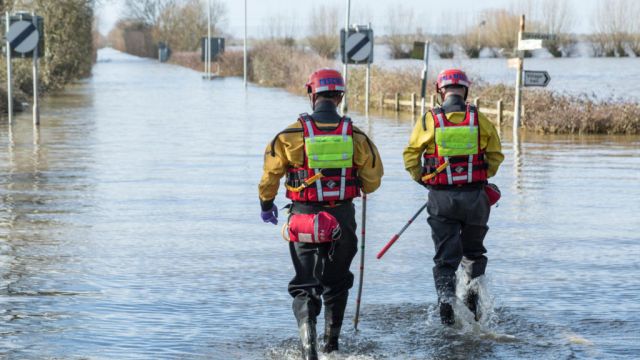Up until recently, Ireland has had a pleasant weather run. Temperatures have been mild, days sunny, and summer was exceptionally dry. But rain has returned, and it’s back with a vengeance.
Met Éireann issued a blanket yellow warning ahead of heavy rain on Sunday night and into Monday.
The warning will take effect for the 26 counties from 3am on Monday, lasting until 8pm the same day.
Wind, rain or snow, here’s how to get your property weatherproofed for winter…
Fight the wind
Strong winds can cause all sorts of devastation. Take a good look around your property and secure anything that might get lifted and blown away, endangering property and people.

The Met Office says: “When high winds are forecast, remember that some everyday items in the garden can become ‘missiles’. Most winters we see pictures of airborne trampolines and garden furniture.”
Remove the netting from trampolines and try to secure or safely weight items down with sandbags or by securing them with rope to solid trees. Watch out for anything else that’s loose – such as gardening tools or light ornaments – and make sure they’re placed safely inside.
When storms or high winds are forecast, it’s a good idea to securely fasten windows and doors in good time – don’t forget garages and sheds.
Protect valuables from flood damage
Heavy rain can quickly lead to flooding in high-risk areas, which can result in irreparable damage to your property and valuables. If there’s a chance of flooding affecting your home, it’s best to act early.
“Move items that cannot be replaced – such as photograph albums – to safe places on upper floors,” says Ian Paton, partner in building consultancy at Cluttons (cluttons.com). Other items to consider relocating include “cars, pets, furniture, electrical equipment and treasured possessions”.
Don’t have an upstairs to move things to? If things like important documents are currently in boxes or drawers near the ground, think about placing them higher up, where they’re less likely to be damaged should the worse happen.
Plan for evacuation

Hopefully, having to evacuate your home due to flooding isn’t something you’ll need to face. But if warnings are issued in your area, it’s helpful to have a plan.
If floodwater does enter your property, make sure you know how to turn off gas, electricity and water mains. Paton adds: “Check insurance is up to date and covers storms and flooding, and that the value of your contents is up to date.”
Prepare a flood kit
If you are in an area with serious flood warnings, another step to consider is preparing a flood kit. This could typically contain copies of important documents, plus practical items such as “torches, spare batteries, a windup radio, bottled water (fill all spare vessels with clean drinking water), medicines, spare clothing and blankets”, says Paton. Keep a list of emergency phone numbers handy too, including your energy suppliers, local police, doctors and family and neighbours you may need to contact in the event of a bad flood.
Keep roofs and gutters clear
“Check roof tiles are in good order and gutters are free-flowing, and cleared of all leaves and debris,” says Michael Jones, national waterproofing manager at Rentokil Property Care.
If it snows, beware of ice dams forming as ice melts and refreezes. “It’s important to check your roof is of sturdy build, with no structural damage, such as rot or woodworm, that may cause a collapse due to the weight of snow on the roof,” suggests Jones.
Check your boiler

Cold water can cause pipes to contract and burst, so it’s important to insulate external pipes and areas indoors that aren’t heated. Boilers are also vulnerable to breaking down during chilly periods, when the condensate pipe (which removes steam and condensation from boilers) can freeze and shut down. (electricireland.ie)
While most of us will be reluctant to switch on the heating due to rising energy prices, it is important to keep a flow of water through the pipes. An hour a day should be sufficient. Make sure the boiler is regularly serviced, too, to prevent any problems.







